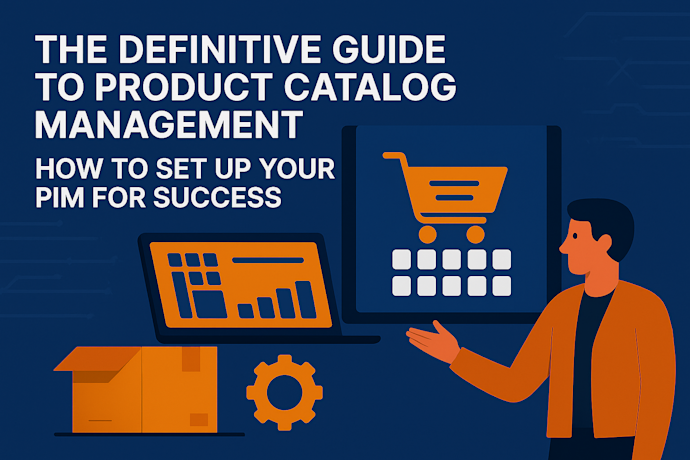
How a PIM System Empowers Marketing Teams with Accurate Product Data
Eliminate Manual Product Data Checks Across Departments
Does your marketing team spend a considerable amount of time verifying if the product data they’ve received from different departments is valid and up to date? A PIM, Product Information Management system, is an easy, time and cost-effective solution to this.
Adapting to Mobile-First Search Behavior
As more and more people leverage smartphones and mobile devices to search for what they want, companies need to ensure their products are being marketed optimally to increase sales. Consumers tend to search for the products they want to buy by using keywords. In fact, 93% of all online experiences start with a search.
Understanding the Role of PIM and DAM
A DAM, digital asset management tool, manages images, videos, presentations, and the metadata related to such digital assets. A PIM system on the other hand functions as a single source of truth for all aspects of product data including technical data, media assets, pricing information, usage data, and more. Some types of PIM software, like Pimcore, include DAM functionality, allowing you to store, extract, and distribute digital media assets easily.
How PIM Supports Agile Marketing Campaigns
Marketing teams need to run agile campaigns, quickly adapting to any changes in trends or ideas. Sifting through redundant and inaccurate dates can cause unnecessary delays and takes up time that could otherwise be spent on creative strategies.
Here’s how a PIM can optimise marketing with product data:
Cohesive product data management
Implementing a PIM solution can help your company’s marketing team manage large volumes of product data easily. Product data can be easily organised, analysed, and distributed to various departments to ensure sales presentations, internal documents, and external marketing efforts all reflect the same data.
Marketing teams for large scale e-commerce sites, manufacturers, and retail businesses, in particular, can benefit from incorporating a PIM system to handle product data. Their high volume of sales and frequent activity uses enormous amounts of product data which marketing managers can easily leverage in their campaigns through a PIM.
Streamlined Workflow Across Teams
Marketing teams need to be able to collaborate with other departments to create successful campaigns. Too often, finding the right product data and ensuring its validity means reduced time for creativity, innovation, and strategizing. Shuffling between departments to get the latest version of the product data can be time-consuming and unnecessarily laborious.
Implementing a PIM ensures a streamlined workflow because it lets different departments upload the latest version of product data such as catalogues, design templates, digital media assets like videos & gifs, which in turn the marketing team can access when needed to build their campaigns. This frees up time that can be better spent ideating about marketing plans and increasing the ROI for the company.
Efficient Multi-Channel Marketing Execution
Marketing teams seldom focus on only one channel to promote their campaigns. A good PIM lets marketing teams work with centralised data which can then be disseminated across various channels according to pre-set rules. This ensures the information remains consistent and error-free without being a simple (yet tedious) copy-paste job.
Improved User Experience and SEO Visibility
PIM software helps marketing teams evaluate how their omnichannel marketing campaigns are improving user experience. Teams can focus on the avenues and channels which are showing the most engagement and tweak the product data on other channels to match.
When it comes to digital marketing, SEO is a key component of product visibility. PIM platforms allow you to input relevant meta descriptions, helping consumers find their way to your product faster. Since the PIM ensures that consistent information is shared across different channels, every user has a seamless experience when they interact with your business.
Scalable International Growth Through Centralised Data
A PIM system is also a great way to grow your company and ensure that your product transcends both geographic and linguistic boundaries. A centralised database ensures that your product data can be easily translated into different languages, leading to a wider reach and competitive growth in the market. PIM platforms also allow team members to work across countries, letting them access the same information at the same time, which helps the international marketing teams optimise marketing efforts.
Effective PIM solutions like Pimcore free up precious time for busy marketing teams and help them become more agile, adaptive, and innovative in the long-term.


